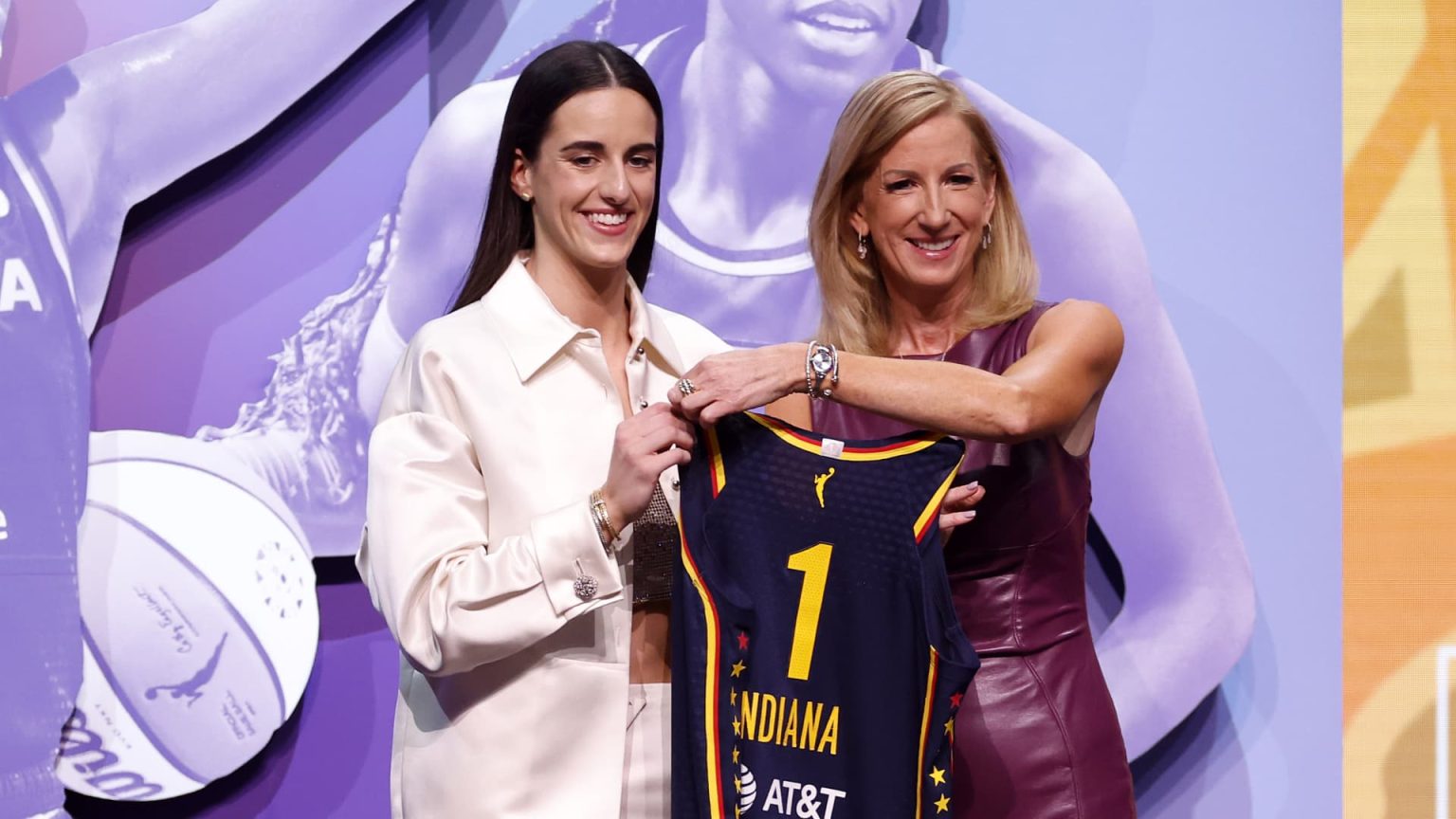The buzz surrounding Caitlin Clark’s selection as the first overall pick in the 2024 WNBA Draft by the Indiana Fever attracted a record-breaking 2.45 million viewers, underscoring the significant impact anticipated from the NCAA’s leading scorer in both men’s and women’s basketball. Her future WNBA salary of $338,056 over four years has sparked discussions about gender pay disparity, especially in light of comparisons to the significantly higher salaries of NBA players like Victor Wembanyama. WNBA Commissioner Cathy Engelbert emphasized that there is more to Clark’s potential earnings than just her base pay, with lucrative endorsement deals expected to boost her income significantly. Clark, already endorsed by brands like Nike and Gatorade during her time at Iowa, is set to sign a new Nike deal worth over $20 million along with a signature sneaker.
Engelbert defended the WNBA’s compensation structure by pointing out that the league is significantly younger and smaller in revenue compared to established male leagues like the NBA. She highlighted the importance of the league’s revenue drivers such as media rights and sponsorships, along with the revenue generated by ticket sales for individual teams. The WNBA is currently working on securing a new media rights deal, which is expected to double the existing deal worth around $60 million annually when it expires in 2025. Engelbert expressed optimism about the potential for increased media rights fees, citing the shifting landscape of the media industry as an opportunity for women’s sports to be valued more accurately.
Engelbert characterized the WNBA as a “growth stock,” shedding the perception that women’s sports are charity endeavors and emphasizing the league’s legitimacy as a sports, media, and entertainment property. She emphasized the importance of recognizing the potential for growth and profitability in women’s sports, particularly as traditional notions about gender roles and sports continue to evolve. The WNBA’s success, along with the broader impact of women’s sports, is seen as a significant opportunity for media companies and investors to tap into a burgeoning market with immense potential for expansion and revenue generation.
The issue of gender pay equity in sports has gained widespread attention, with President Joe Biden weighing in on Caitlin Clark’s WNBA salary and emphasizing the need for women athletes to receive fair compensation for their achievements. The disparity between male and female athletes’ salaries has been a long-standing concern and is under scrutiny as women athletes like Clark are increasingly in the spotlight for their exceptional talent and marketability. The focus on endorsements and other revenue streams for women athletes, in addition to their base salaries, is seen as crucial to bridging the gap and ensuring that they are able to maximize their earning potential in the sports industry.
The spotlight on Caitlin Clark’s draft selection and expected earnings serves as a catalyst for broader conversations about representation, compensation, and opportunities for women athletes in professional sports. With the WNBA positioning itself as a growing and dynamic entity in the sports and entertainment landscape, there is a growing recognition of the value and potential of women’s sports to drive revenue, engagement, and growth. The league’s efforts to secure lucrative media rights deals and expand its brand partnerships signal a concerted effort to elevate women athletes and showcase their talent on a global stage, while also addressing the systemic challenges that have historically hindered their earning potential and recognition in sports.
Overall, the draft selection of Caitlin Clark has ignited discussions about gender pay equity, media representation, and the value of women’s sports in the broader sports industry. Englebert’s defense of the WNBA’s compensation structure, along with the league’s focus on expanding revenue streams and securing new media rights deals, points to a shift in how women’s sports are perceived and valued. As women athletes like Clark continue to make strides in their careers and attract widespread attention, the potential for increased opportunities, earnings, and visibility in the sports industry is becoming more pronounced, setting the stage for a new era of growth and advancement for women in sports.


